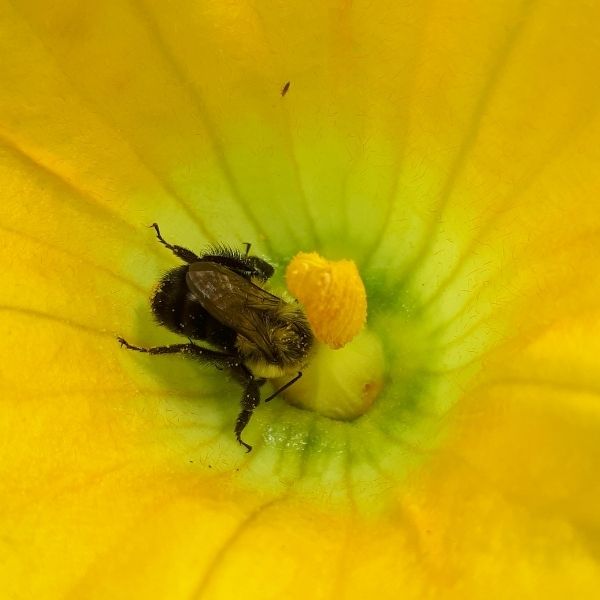We had a cool, rainy May, and my tomato plants are definitely lagging behind where they usually are by now. If yours are too, just have a little patience. Now that it’s June, the sun is out, and temperatures are climbing into the 80 it’s time to start watching for the common summer tomato problems that can sneak up fast.
Tomatoes are one of the most-loved vegetables to grow in home gardens, but they can also be one of the most frustrating. Just when you think you’ve got a great crop started—plants are growing tall, blossoms are forming—something goes wrong. Leaves curl, flowers drop, fruit cracks, or the whole plant seems to stall out in the summer heat. Last summer was a good example. Prolonged temperatures in the 90’s had everyone wondering what was going on with their tomatoes.
Here’s a few common reasons your tomatoes might struggle in summer—and how you can fix it.
Too Much Heat, Not Enough Pollination
Tomatoes love warm weather—but there’s a limit. When daytime temps climb above 85°F and nighttime temps stay above 70°F, tomato blossoms can drop without setting fruit. That’s because high heat affects pollination.
How to fix it:
-
Give plants afternoon shade using shade cloth or even a patio umbrella. Just a few hours of relief can help.
-
Attract pollinators by planting flowers nearby—zinnias, borage, and cosmos are all great options.
-
Hand pollinate by gently shaking the flowers or using an electric toothbrush to mimic buzzing bees.

2. Inconsistent Watering
Tomatoes need deep, consistent watering, especially in the heat of summer. Fluctuations in moisture—too dry, then too wet—can lead to problems like blossom end rot, cracking fruit, or leaf curl.
How to fix it:
-
Water deeply 2–3 times a week instead of light daily watering.
-
Use mulch to help keep soil moisture even. Straw, shredded leaves, or compost work well.
-
Check soil moisture by sticking your finger a few inches into the soil. If it feels dry below the surface, it’s time to water.
3. Lack of Nutrients
Tomatoes are heavy feeders. If they’re not getting what they need, especially during fruiting, you might see yellowing leaves, small fruit, or stunted growth.
How to fix it:
-
Side-dress with compost or a balanced organic fertilizer once fruit starts forming. Choose an organic fertilizer where the 2nd number which represents phosphorus is the highest. For example, Dr. Earths Tomato Herb and Vegetable Fertilizer is 4-6-3. Phosphorus is important for fruit production.
-
Avoid overdoing nitrogen—too much leads to lush green leaves and very few tomatoes.
-
Do a soil test if you’ve had blossom end rot in the past.

4. Pest Pressure Increases in Summer
Warm weather means more bugs. Aphids, hornworms, whiteflies, and spider mites can stress your plants and reduce productivity fast. hornworm in the picture above has the eggs of the parasitic wasp on it. Once they hatch, they will devour the hornworm.
How to fix it:
-
Inspect regularly—look under leaves and around blossoms.
-
Handpick large pests like hornworms.
-
Encourage beneficial insects by interplanting herbs and flowers like dill, fennel, marigolds, and sweet alyssum.
-
Do not use broad-spectrum insecticides, which kill the good bugs along with the bad.
5. Lack of Airflow and Pruning
Tomatoes planted too closely or left unpruned can become tangled and overcrowded. That traps moisture and heat, which can invite fungal issues like early blight or leaf spot.
How to fix it:
-
Prune the lower leaves below the first flower.
-
Stake, cage, or trellis your plants to improve airflow and keep leaves off the ground.
-
Space plants properly—at least 24–36 inches apart depending on the variety.
If your tomato plants are struggling this summer, don’t give up. A few small changes—consistent watering, a little shade, the right support—can go a long way toward turning things around. Tomatoes may be picky, but once you understand what they need during the hottest part of the season, you’ll be on your way to a healthier, more productive garden.
Have you had trouble with tomatoes in the heat? Leave a comment below and let’s troubleshoot together!
Happy Gardening!
Karen

